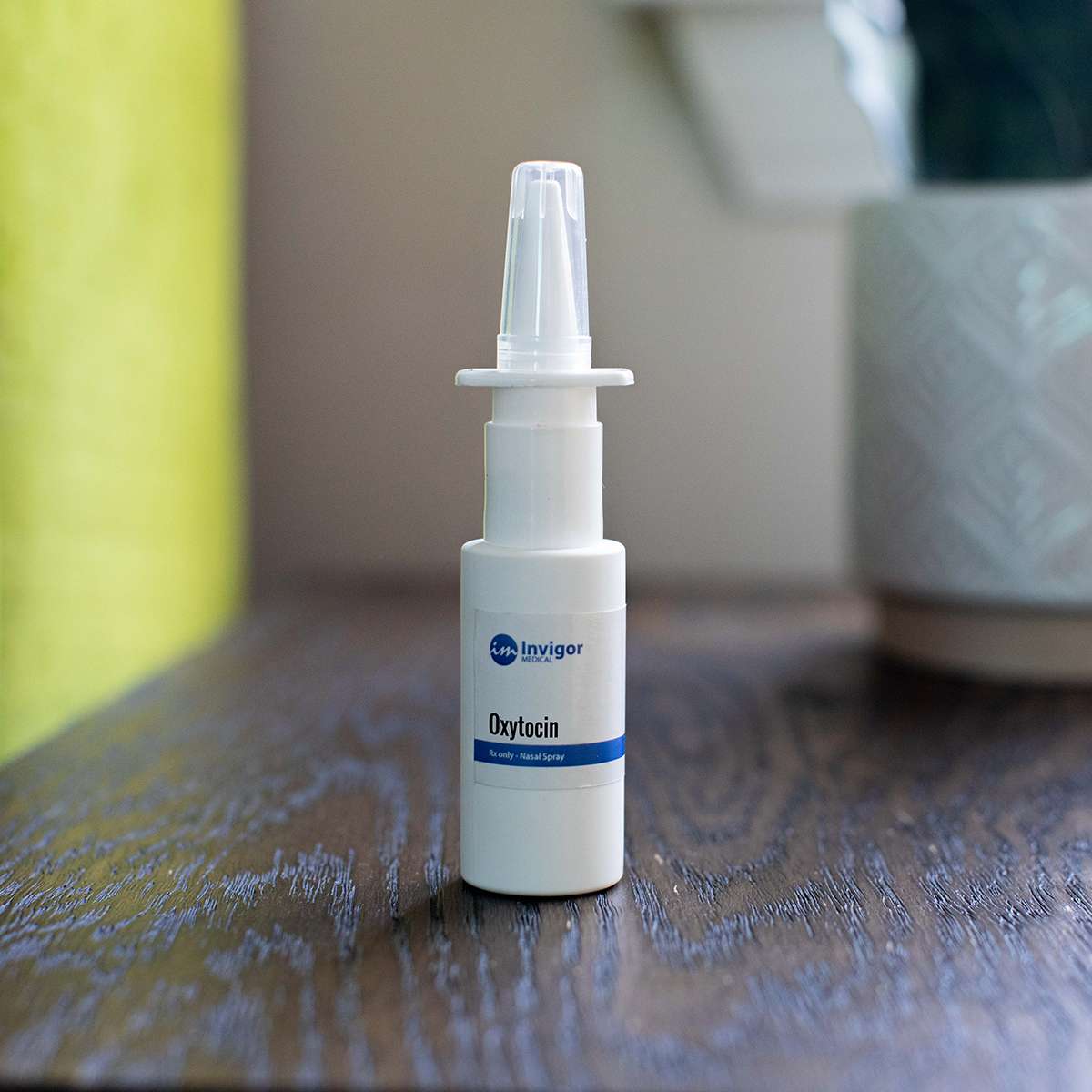






+
+
.7★


Oxytocin is a hormone that is released during childbirth, breastfeeding, sex, or after a hug or a cuddle with someone you have bonded with socially. For example, oxytocin helps bind parents to children and romantic partners with each other.
Oxytocin is released in the brain when sensory nerves are activated during labor, breastfeeding, or sex. It can also be released with more superficial stimulation like stroking or hugging. Oxytocin may also be released after exercise or listening to music. It is being studied to treat conditions such as depression, autism spectrum disorder, and drug addiction. Researchers are working on better understanding this important hormone.
Experts report that dysfunctional oxytocin signaling may lead to weight gain. This finding, along with recent research that shows that oxytocin may help modulate appetite and reduce cravings, has made oxytocin a potential therapeutic used to treat overweight and obesity.
Several research studies have demonstrated oxytocin’s ability to modulate appetite and reduce cravings.
Oxytocin can cause weight loss by:
Oxytocin decreases food and calorie consumption by reducing the appeal of foods that are high in fat and calories.
Oxytocin has antidiuretic effects, which means that you may notice some water retention. However, the effect is expected to be significantly less with oxytocin nasal spray than with intravenous forms of oxytocin.
The primary side effect associated with oxytocin is a change in heart rate. Changes in heart rate can occur as a response to changes in blood pressure or changes in fluid volume. Since oxytocin is delivered as a nasal spray, it may cause watery eyes, irritation to the inner lining of the nose, or a runny nose.
Any substance has the potential to trigger the immune system and an allergic reaction. What will trigger your immune system to react is determined by your genetic predisposition and environmental exposures. Oxytocin is considered to be an uncommon cause of allergic reactions. Most of the research on oxytocin and its side effects was done using intravenous oxytocin during childbirth.
Oxytocin is released during childbirth, breastfeeding, and contact with a romantic partner. It is also released after positive physical and emotional contact with another person. Oxytocin has a calming effect that promotes feelings of well-being and satisfaction. However, it cannot make you think or feel something that you don’t. Oxytocin may enhance feelings that are already part of your personality.






*Prescription medications available only if prescribed by the healthcare provider after an online consultation. This is a compounded medication.